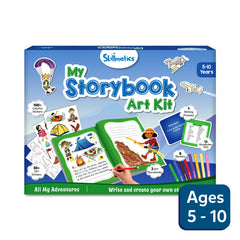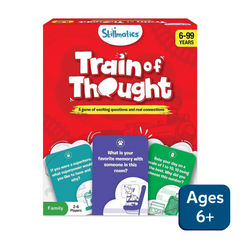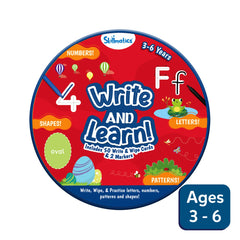“Once you learn to read you will be forever free.” Fredrick Douglass
There is perhaps no greater gift you can give your child than the gift of reading: once nurtured, it is a skill and practice that can set their mind free and provide them with a lifetime of learning and connection. Reading encourages healthy development of cognitive abilities and aids in your little one’s development into an intellectually and emotionally confident human being. Beyond the developmental benefits, reading is also a great way to connect with your child, whether you’re reading a story together or talking to them about their favorite books.
Here are some tips for nurturing your little one’s love of reading so you can raise an avid reader!
1. Try Out Different Reading Strategies
There are a multitude of ways to foster your child’s love of reading. For instance, try an interactive style: read a passage or two with your preschooler and ask them questions about what you just read together. Why did their favorite character do what they did? Was there anything they found funny or sad?
Maybe they prefer a different approach, one where their knowledge and experiences are highlighted: this is called the top-down approach, one which puts the focus on how they make sense of the story instead of just taking the words on the page as the true meaning. As you open the book, ask them what they think will happen. While reading, talk about experiences they may have had that are similar to those of the characters.
Perhaps you want to try out the bottom-up approach, one where the text introduces new ideas and emotions to your child. While reading something, take the opportunity to explain unfamiliar ideas with them. Afterwards, give your little one a chance to tell you about something new they learned.
2. Be a Model Reader
One of the best ways to foster robust reading habits in your child is to surround them with people who read. Children emulate those around them, and if they regularly see everyone around them reading, they are likely to follow in those footsteps. Read In front of your little one, talk to them about books you read when you were a child and books you are reading now, and find stories for them at a local library or bookstore to pique their interest in reading. Once they begin to realize reading is encouraged and valued by those around them, they are likely to start to love reading too.
3. Make Reading a Bonding Activity
Reading together or to each other is a great way to spend quality time with your little one and encourage them to think of reading positively. Further, reading out loud helps improve your preschooler’s pronunciation, enunciation, and overall speaking skills. In addition to reading together, you and your family can also celebrate literary days or authors. Visit your local library in February on Take Your Child to the Library Day, purchase children’s books by Black authors during Black History month, and try reading some poetry with your little one during April for National Poetry Month.
4. Design a Reading Nook
Create a space that is conducive to reading and encourage your little one to go there whenever they want to dive into a story. Designing a nook that is accessible and comfortable for your preschooler, with some cozy pillows and blankets and an assortment of their favorite books or a rotation from trips to the library, can encourage them to spend more time exploring the world of books.
5. Go Beyond Reading
Introduce fun reading games that help your preschooler practice recognizing letters and patterns so they can start on their own reading journey. Books and reading activities made especially for them, designed to help them practice comprehension and engagement with reading, give them a taste of accomplishment and confidence. Plus, they’re exciting and fun!
Playing games to support early literacy helps build confidence in young readers.
6. Curate a Variety of Books
Having a diverse range of books from different genres laid out in your child’s reading nook or reading basket can give them lots of choices for reading adventures. Having multiple genres and styles of writing on hand like comics, short stories, and mystery series can expand your child’s comprehension and creativity, and inspire them to try out different styles in their own writing and pretend play. Curate books from different cultures that deal with a variety of themes, with a mix of fiction and non-fiction books, and give your child the chance to broaden their knowledge and creativity. Letting them choose their own books will also allow them to have a little taste of independence as they make their own decisions about the reading adventures they will go on.
7. Encourage Writing Too!
Enhance your child’s reading experience and creativity by encouraging them to write, narrate, and act out their own stories. Writing their own little books and reading them aloud will stimulate your child to read, draw information, and reflect on stories they have read before. It will also provide for some pretty interesting, sweet, and funny stories and performances from your little one.
8. Show Your Local Library Some Love
Add a little adventure to the activity of reading by making a ritual out of trips to your local library. Sign your preschooler up for a library card so they can not only meet fellow readers, but so they also have access to books they can pick out for themselves. Participating in library events can also build a sense of community for your little one and further inspire them to read.
9. Routine and Repetition
Creating a routine can make reading a daily habit and bring more literary fun into your child’s life. Incorporating healthy reading habits into your little one’s daily routine provides them with consistency, while sitting with them and reading out loud can also increase their attention span, both of which are great for their cognitive development. Re-reading stories can also improve pattern recognition and increase your little one’s confidence in their knowledge of the story and their enjoyment of the activity.
Creating a routine of daily reading not only reinforces good habits but also provides ample time for cuddling.
10. Build Curiosity
Cultivate your child’s curiosity by asking them questions while reading and encouraging them to ask you questions as well. Doing so makes reading a more interactive activity and stimulates your little one to read more to know more. Try reading out the first chapter of a book and then asking your little one what they think will happen next, or telling them what you think will happen in the pages ahead. Instilling in your preschooler the practice of thinking ahead will encourage them to be interested in finding out what happens next to satisfy their curiosity.
Many adults have fond memories of reading with their own parents and loved ones, making reading a great activity to pass along to little ones not only for their intellectual stimulation and development, but to strengthen emotional connections. Make reading a fun routine at home by borrowing books from the library, browsing titles with your child at a local bookstore, or investing in books and learning kits to strengthen their love of reading and their reading skills.
BENEFITS OF EARLY READING
1. Improved Speech and Vocabulary
Nurturing reading in early childhood can help improve your little one’s vocabulary, exposing them to new words and helping them add more phrases into their speech, thus strengthening their grasp on language. Regularly reading aloud to your preschooler and asking them to try reading aloud to you also improves their speech and inspires confidence in their own reading and speaking skills. Soon you’ll have your own little orator running around!
2. Better Comprehension
Academic and non-academic material is easier for the child to comprehend if they have been introduced to comfort reading early on. Regular reading benefits their analytical skills and improves their understanding of concepts that are introduced to them inside and outside the classroom later on.
3. Fostering Imagination and Creativity
Transporting the mind to different lands and times, engaging with various characters and plots, and learning from various genres and styles of writing nurtures your preschooler’s creative and imaginative capacity. Early reading not only helps your preschooler develop visualization skills, but also provides them with an activity that is both enjoyable and educational.
4. More Bonding Time
Reading can help your little one create bonds and strengthen ties to family members. Reading together, reading aloud, and reading related activities not only teach your child about the value of reading but also guarantees quality time together, which leads to cherished memories for them as adults.
Despite these benefits and tips, some children may need a little extra encouragement to get into reading. Creating a space that is conducive to reading, modeling reading as a fun activity, and developing a routine can encourage children to embrace the activity wholeheartedly. Rotating in new books, learning toys, and activities will also support your child’s reading journey.













